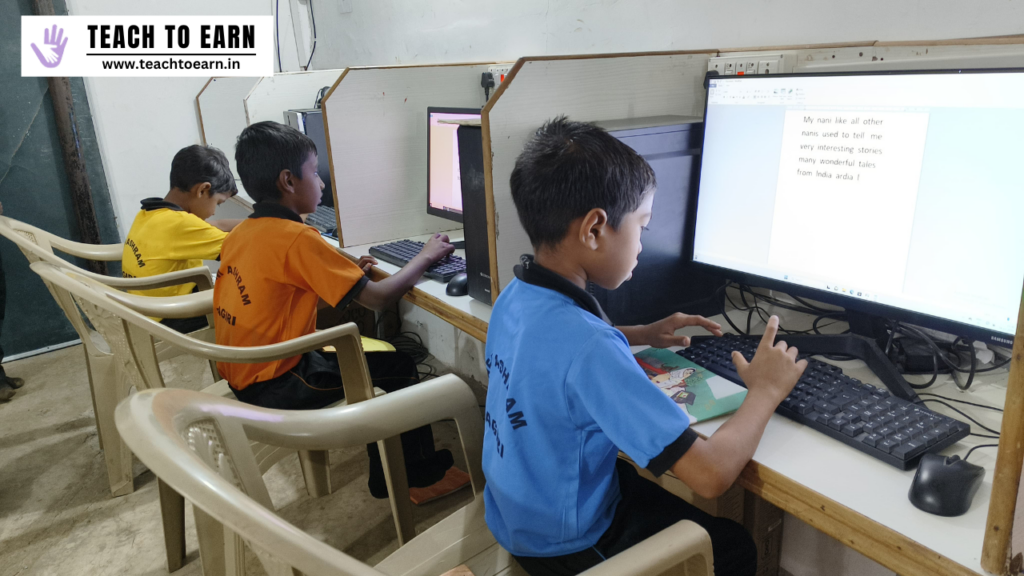Have you ever wondered how you can give back to your hometown in a meaningful, lasting way? For many NRIs, the desire to make a difference often feels overwhelming due to the limitations of traditional methods of giving back. But what if there were a transformative, sustainable way to impact education in your community—one that doesn’t just donate resources but empowers children to shape their own futures?
In this conversation, Dr. Malpani shares an innovative approach to reforming education in India. He introduces the concept of digital learning pods and explains how NRIs can contribute by setting up community learning center that offer children a real chance to unlock their potential.

NRI: Dr. Malpani, I’ve been following your work on reforming education in India. It’s impressive. But tell me, do you really believe the traditional school system is failing? After all, many of us, myself included, went through the same system and have done well for ourselves.
Dr. Malpani: That’s a valid question. The traditional system worked for a minority of students, yes—especially those who were able to adapt to its rigid structure. But let me ask you this: did the education system succeed, or did you succeed in spite of it?
NRI: Hmm. That’s an interesting way to look at it. I’ll admit, a lot of what I’ve achieved came from experiences outside the classroom. But isn’t the system necessary to provide structure and discipline?
Dr. Malpani: Structure and discipline are important, but at what cost? The current system prioritizes rote learning and standardized tests. It measures success by marks, not by skills or creativity. It tells students what to think, instead of teaching them how to think.
NRI: But isn’t that how education works everywhere? You learn the basics, and later, you figure out your own path.
Dr. Malpani: That’s the problem. Why wait until later? Why can’t students explore their passions and develop critical thinking skills from the start? By the time they “figure out their path,” it’s often too late. They’ve been conditioned to follow instructions instead of leading.
NRI: So, you’re advocating for students to have complete freedom?
Dr. Malpani: Not complete freedom—autonomy. There’s a difference. Autonomy is about giving students agency over their learning while guiding them. When students choose what they want to learn, they’re naturally more engaged and motivated.
NRI: That sounds great in theory, but how do you implement this in practice?
Dr. Malpani: Through something I call digital learning pods. Imagine a small group of students coming together in a safe space with access to technology and online resources. Instead of being spoon-fed information, they explore subjects they’re curious about. A caring adult facilitates the process, but the students lead their own learning.
NRI: Digital learning pods? That’s an intriguing idea. But doesn’t it require expensive infrastructure and resources?
Dr. Malpani: That’s the beauty of it. It doesn’t. With a modest investment—around Rs. 2 lakhs—you can set up a fully functional community microschool with 10 PCs, where students learn with and from each other. We now run over 60 www.apnipathshala.org pods all over India, and this is a scalable and sustainable model . All it needs is a safe space of about 200 square feet, with electricity and a WiFi connection, with a caring adult to supervise this. Parents of the kids who study here are a great fit. A PC with internet access is the gateway to a world-class education. There are countless free online resources available, from Khan Academy to coding platforms, which allow students to learn at their own pace.
NRI: That’s an incredible ROI, but do you really think this can compete with traditional schooling?
Dr. Malpani: It’s not about competing—it’s about complementing and, in many cases, replacing what doesn’t work. Traditional schools are constrained by outdated curriculums. A digital learning pod is dynamic and flexible, adapting to each child’s needs. It’s not limited by geography or teacher availability.
NRI: I can see how that would work for some kids, but what about those who lack self-discipline? Won’t they need constant supervision?
Dr. Malpani: Initially, yes, some structure is needed. That’s why the role of a facilitator is crucial. This isn’t about leaving kids to figure everything out on their own; it’s about guiding them without micromanaging. Over time, students develop self-discipline because they’re learning what excites them. It’s intrinsic motivation, not external pressure.
NRI: What about social interaction? Aren’t schools important for building friendships and learning teamwork?
Dr. Malpani: Absolutely, and that’s another advantage of digital learning pods. These are small, collaborative groups where students naturally learn teamwork and communication. Unlike traditional classrooms, where students are passive recipients of information, here they actively engage with their peers to solve problems and explore ideas.
NRI: I must admit, this sounds promising. But as an NRI, I’m concerned about the future of education in my hometown. The local schools there are underfunded and outdated. What can I do to make a real impact?
Dr. Malpani: This is where you can truly make a difference. For just Rs. 2 lakhs, you can sponsor the creation of a community microschool in your hometown. Imagine giving children access to tools and resources that can transform their lives. These kids don’t just need an education—they need an opportunity to dream bigger and achieve more.
NRI: That’s a compelling thought. But how can I ensure it’s sustainable? I don’t want it to be a one-time initiative that fizzles out.
Dr. Malpani: Sustainability comes from community involvement. When local parents and facilitators see the impact, they take ownership. Plus, the low-cost model ensures it’s easy to maintain. We provide the initial setup and guidance, but the community drives its growth.
NRI: You make it sound simple. But will this really prepare kids for the future?
Dr. Malpani: Let me ask you this: what skills helped you succeed in life? Memorizing dates and formulas, or problem-solving, adaptability, and lifelong learning?
NRI: Definitely the latter.
Dr. Malpani: That’s what a digital learning pod focuses on. The world is changing rapidly. The jobs of tomorrow will require creativity, critical thinking, and tech-savviness. Traditional schools can’t keep up with this pace of change, but a flexible, student-led model can.
NRI: You’ve convinced me, Dr. Malpani. I want to be a part of this change. How do I get started?
Dr. Malpani: It’s simple. Visit our website to learn more. We’ll work with you to set up a digital learning pod in your hometown. By doing this, you’ll be giving children the gift of autonomy and agency—the tools they need to thrive in the future. We will name this pod after you. You are responsible for
NRI: This sounds like an opportunity I can’t pass up. Thank you for inspiring me, Dr. Malpani.
Dr. Malpani: The pleasure is mine. Remember, real change begins when we take matters into our own hands. Don’t wait for the system to fix itself—your children, and the children in your community, won’t get a second chance.
Take matters into your own hands by funding a digital learning pod in your hometown — Indian children will not get a second chance! Learn more here. Contact us to start your own digital community learning center in your hometown.
